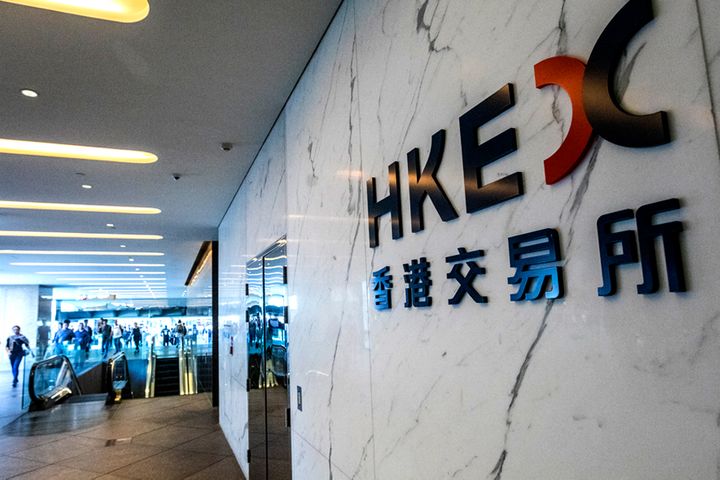 HKEX Posts Record-Breaking Year on New Stock Connect Highs, Biggest IPOs
HKEX Posts Record-Breaking Year on New Stock Connect Highs, Biggest IPOs(Yicai Global) Feb. 27 -- The Hong Kong Stock Exchange's operator reported record annual earnings based on all-time high transaction amounts, some of the world's largest initial public offerings and soaring revenue from the two stock link programs with the mainland.
Net profit at Hong Kong Exchanges and Clearing rose 1 percent from a year earlier to HKD9.4 billion (USD1.2 billion) in 2019 on a 3 percent gain in revenue and other income to HKD16.3 billion (USD2 billion), it said in an earnings report released yesterday.
Revenue from the Shanghai-Hong Kong Stock Connect and Shenzhen-Hong Kong Stock Connect mechanisms, which allow investors in Hong Kong and on the mainland to trade shares on each other's exchanges, exceeded USD1 billion for the third straight year and reached a new high, Chief Financial Officer Liu Biyin said.
Trading by Hong Kong investors in mainland stocks, referred to as northbound trading, set new records. Northbound turnover on the two stock connects was more than twice as much in 2019 than the year before, reaching CNY9.76 trillion (USD1.4 trillion), and daily turnover also more than doubled to CNY41.7 billion (USD5.9 billion), Chief Executive Li Xiaojia said.
HKEX once again topped the world's IPO league table for the sixth time in the last 10 years, raising HKD314.2 billion (USD40.3 billion). Several of 2019's biggest offerings, including Alibaba Group Holding and Budweiser, took place in the Asian financial hub.
Investment returns were also strong and increased 72 percent year-on-year on higher interest from internal management funds and good fair value gains in investments in global stock and fixed income markets.
The first half is usually an off-season for new stocks and the second half tends to be more active in terms of IPOs, so the Covid-19 virus shouldn't have a big impact this year, Li said.
The Shanghai-Hong Kong Stock Connect has been operating for five years and the Shenzhen-Hong Kong Stock Connect for three. These mutual market access schemes allow investors in Hong Kong and on the mainland to trade stocks regardless of where the firms went public through local securities companies and brokerages.
Editor: Kim Taylor